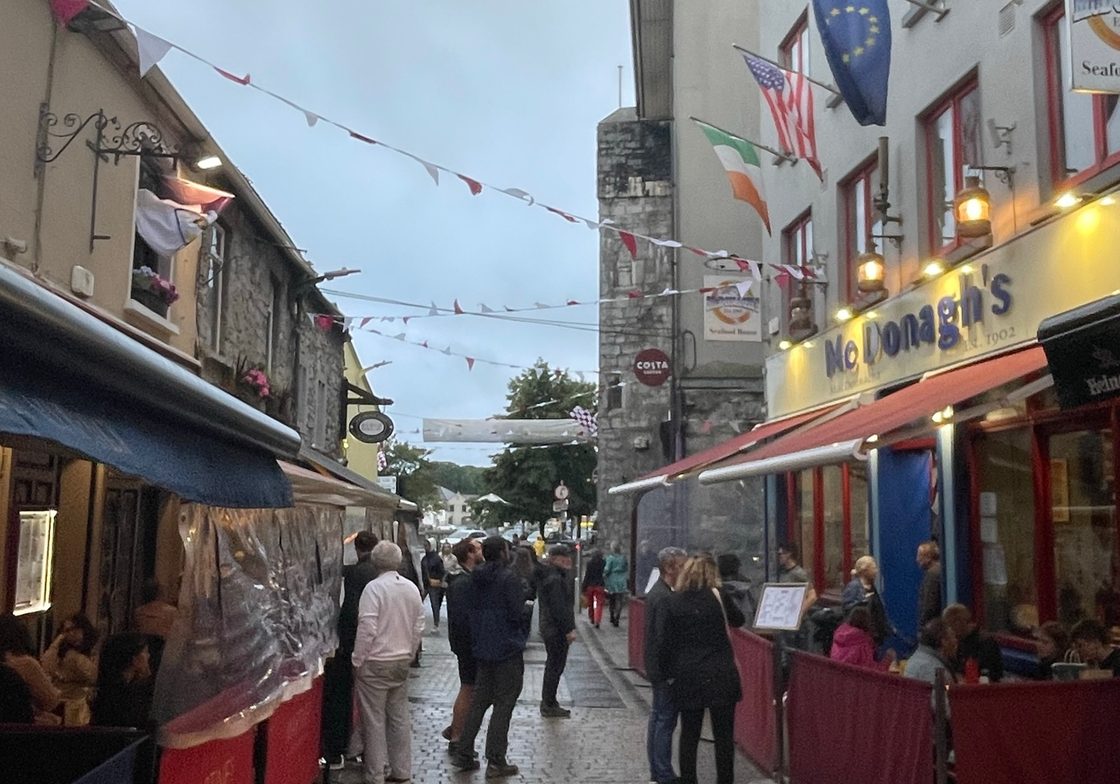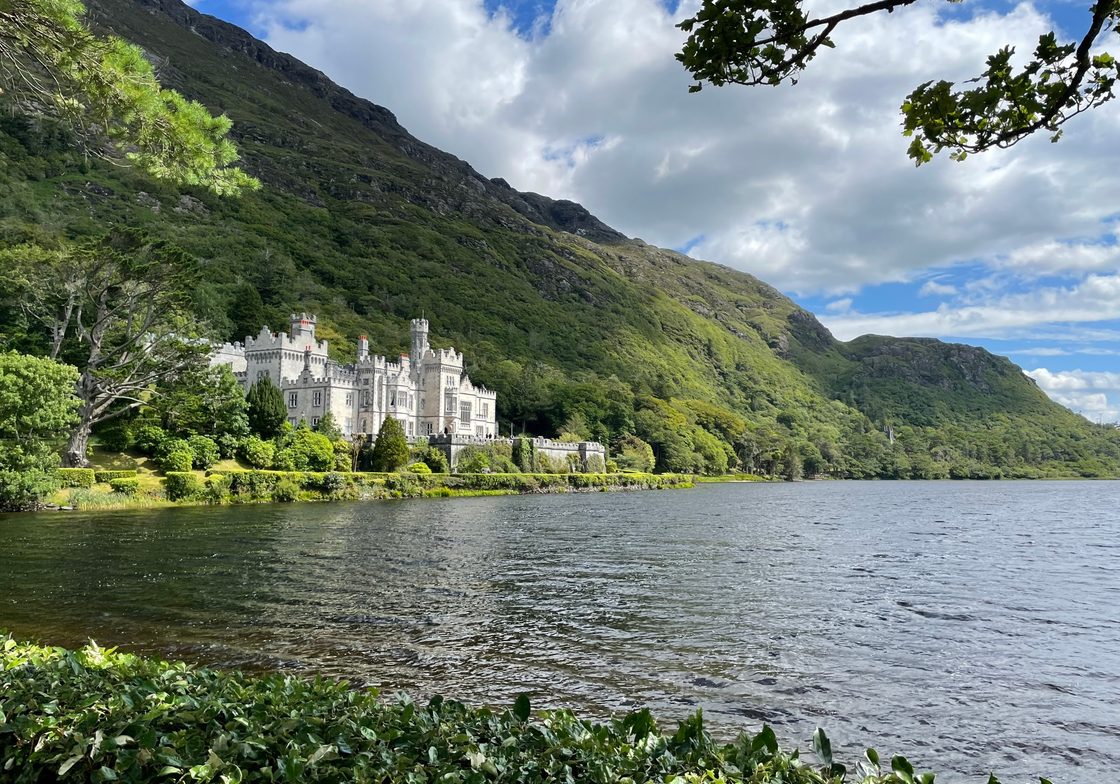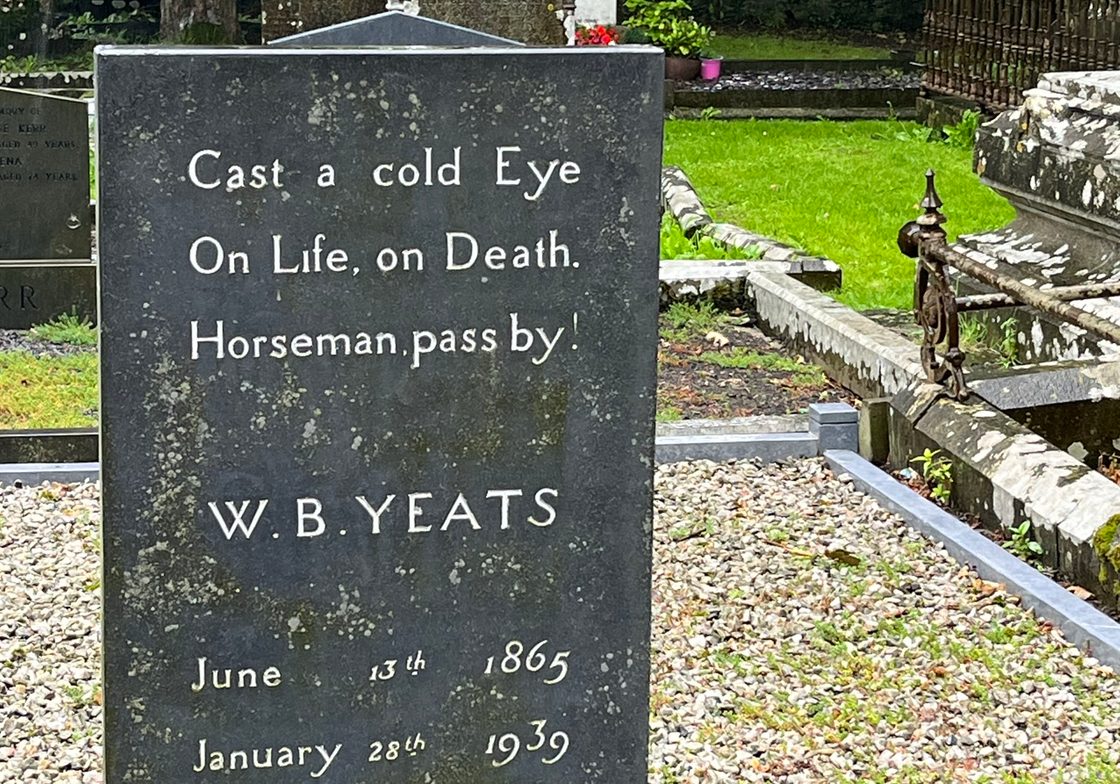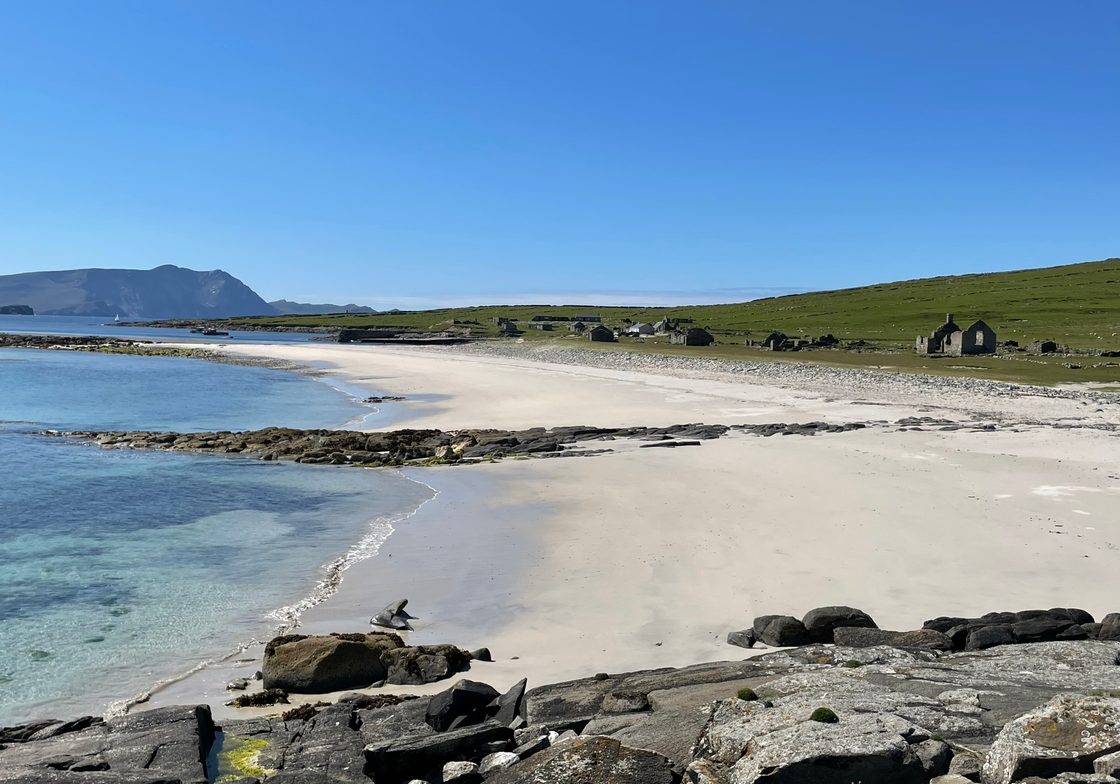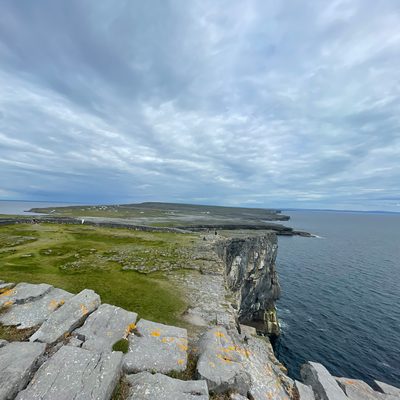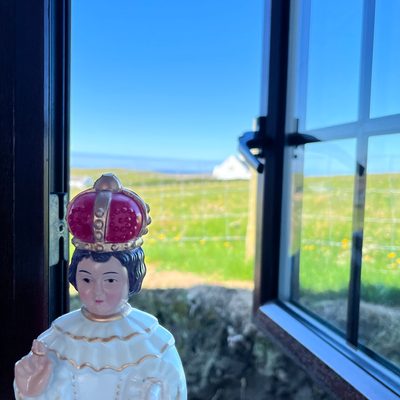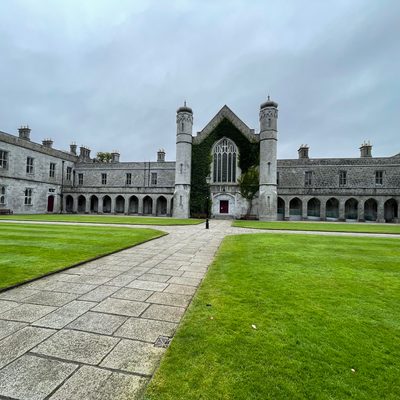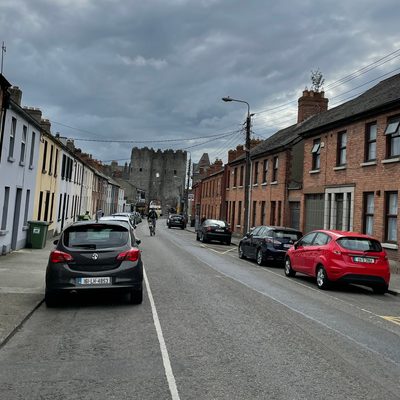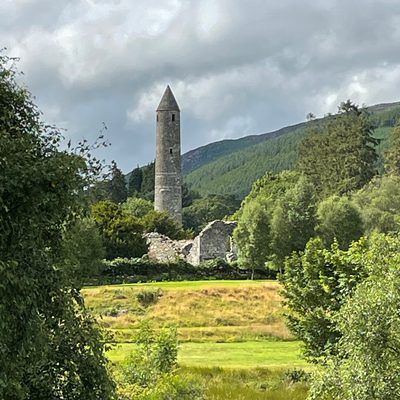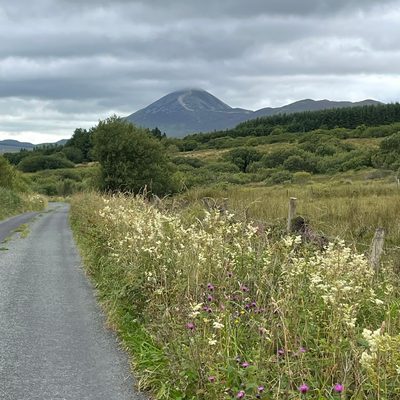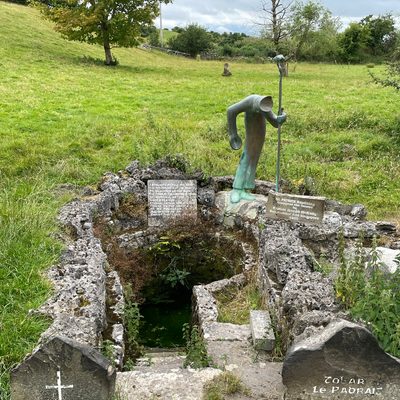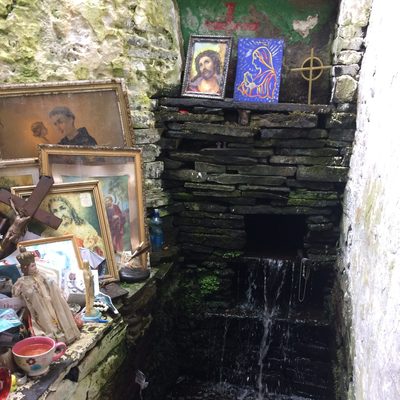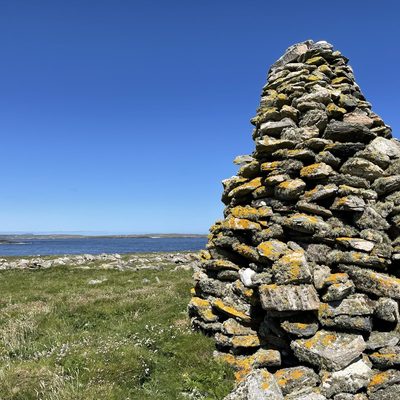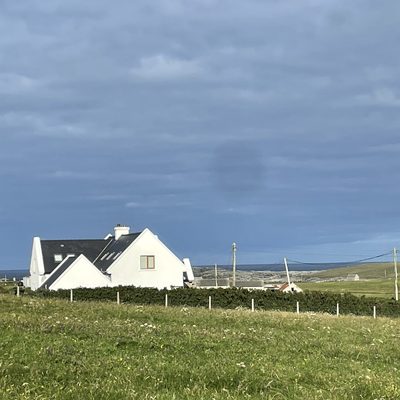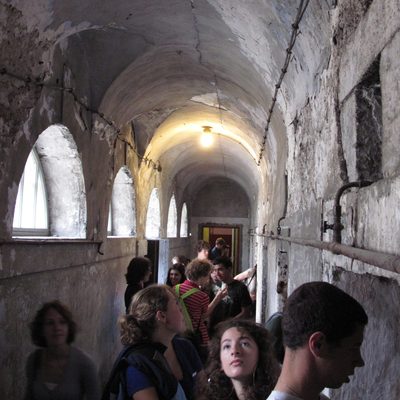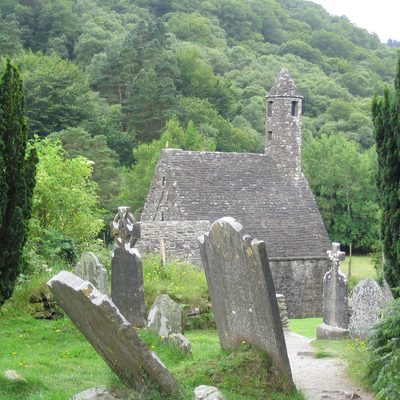Summer 2023
From Joyce’s Dublin to the holy mountains and islands of its West Coast, Ireland teems with storied places that inspire literary and spiritual imaginations even as they embody historical memory of colonization and resistance. This joint English & Religion program explores Irish sacred space and placemaking through literature, walking ancient pilgrimage routes, visiting archaeological sites, attending performances, and immersing in local Irish culture.
Message from Faculty Directors
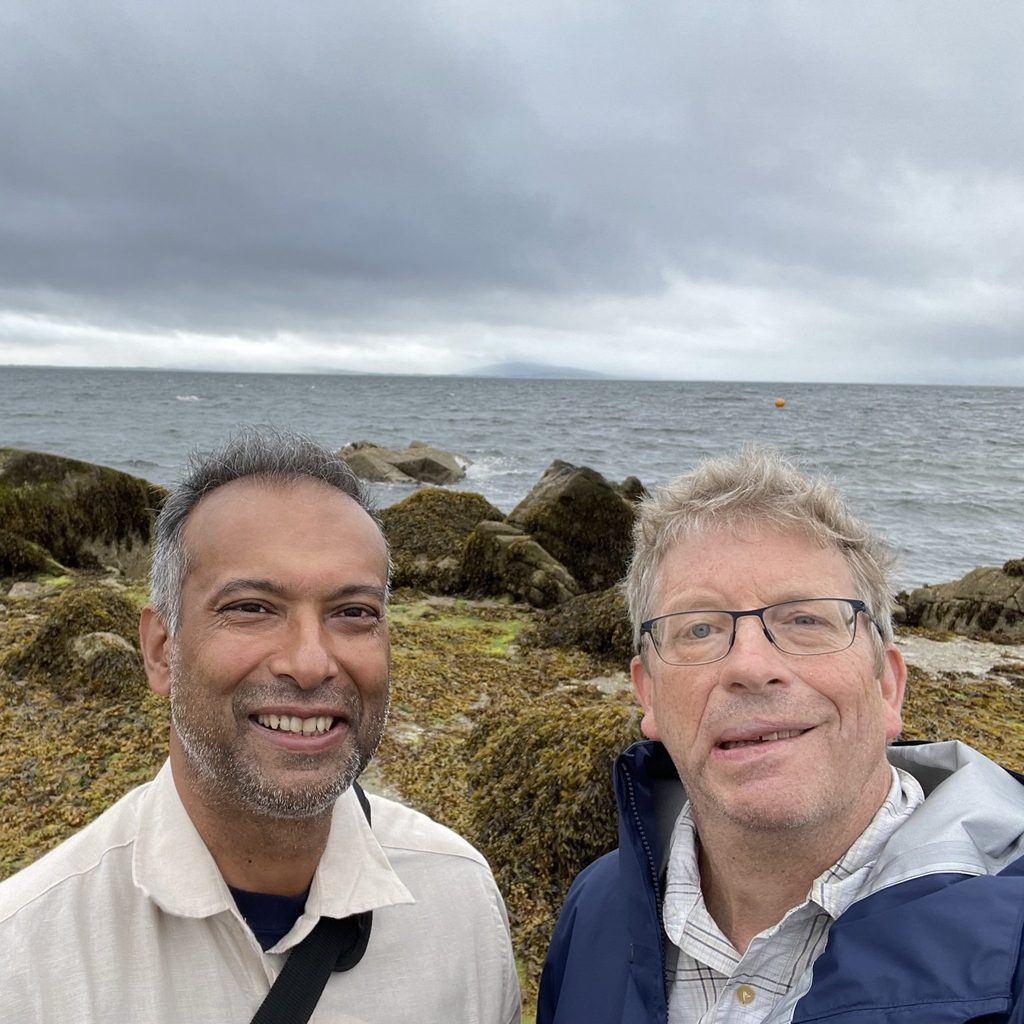
We are excited to co lead this newly-envisioned Carleton Ireland Program that brings together Religion & English in an interdisciplinary exploration of placemaking in literary and religious imagination. Michael McNally (Musser Professor of Religion) researches the protection of Indigenous sacred places and practices. Arnab Chakladar (Associate Professor of English) studies post-colonial literatures and cultures. Especially after our trip to Ireland in July, together we’re convinced Ireland is an ideal place to explore big questions about place-making, post-colonial identities, sustainability, and the contemporary hunger for traditions that are “spiritual, not religious.”
Ireland’s sweeping landscapes and ancient earthworks have long captured literary imaginations, and inspired, through them, movements of cultural and political independence. Ireland has also long been home to a decidedly earth-based “Celtic Spirituality:” holy mountains, springs, islands, and lakes have enabled sacred encounters for pagan, Christian, and contemporary “post-Christian” seekers alike.
As much as Ireland’s places are steeped in these deep cultural traditions, Ireland is in the midst of profound and rapid change as it takes its place in Europe. This summer, while ascending Ireland’s holy mountain Croagh Patrick on its pilgrimage day – also the Celtic Festival of Lughnasa – we were surrounded by a group of devout pilgrims from Dublin of South Asian descent, singing Catholic hymns in Malayalam.
So we know our new idea for this program will be generative of learning that reaches a range of students: If you love poetry, fiction, and theater, this is for you. But so too if you love rambling on breathtaking landscapes, or exploring the practices of lived religion that flourish at the local level. And the program’s concern with pilgrimage offers tools to think about yearnings brought and self-discoveries made in travel abroad. On paper, the 18 credits are evenly split between English and Religion, but the courses inform one another and are recognized as pertinent to other fields of study like Environmental Studies, History, Archaeology, European Studies, such that Ireland: Siting Religion, Writing Place is much more than the sum of its parts.
Academics
Learning Goals
- To understand how Ireland has been imagined and represented in selected works by distinguished 20th and 21st century writers.
- To learn about Irish history and politics, and how they have shaped, and been shaped, by Irish literature, religion, and culture.
- To learn how religious and literary practices are caught up in both accommodation and resistance within colonialism.
- To learn how place and place-making practices embody historical memory and shape religious and cultural identities.
- To challenge and expand our cultural, aesthetic, and personal values through exposure to new ideas, and environments.
- To reflect critically on the contemporary cultural practice of travel, self-discovery, and pilgrimage.
Prerequisites
There are no prerequisites. The seminar is open to students of any major at Carleton. Participants are urged, prior to the start of the program, to take any 100-level or higher English course.
Course of Study
18 Credits
RELG 214: Sacred Place & Pilgrimage in Ireland (6 credits)
Encounters with the sacred at “thin places” on the landscape present a through line of Irish religion: pre-Christian, Christian, and post-Christian. Holy mountains, islands, stones, and wells materialize the sacred and organize the practices of lived religion. Such places are also charged sites of historical memory, colonization and resistance. Long wellsprings of Irish cultural nationalism, they now capture spiritual imaginations of global seekers of earth-based spirituality. Through readings, field visits, and walking several pilgrimage routes, this course explores narratives and practices of sacred places, engage the blurry boundary between the sacred/secular entailed in pilgrimage, and query the modern romance with “Celtic Spirituality.”
Instructor: Michael McNally
RELG 216: Becoming Ireland: Nature, Culture, and Religion in Irish History (3 credits)
The past is a strong presence in Ireland. People live with Iron Age tombs and medieval sculptures in their backyards. Modern identities are negotiated through memories of Ireland becoming Celtic, or Christian, or colonized. Understanding modern traditions about these changes requires investigation of how such features of “being Irish” played out long ago. This course explores foundations of modern Ireland though an archaeological tour of key moments in ancient Ireland, with emphasis on changes in sacred landscapes from period to period. The course involves readings, material culture studies, and experience at archaeological sites, including active excavations.
Instructor: John Soderberg
ENGL 274: Irish Literary Pasts and Presents (6 credits)
In Dublin and Belfast we will read and discuss works by Irish writers from the early 20th century on the Irish Literary Revival and the political and cultural currents leading up the Easter Rising and Irish independence; we will also read works by early 21st century Irish writers in conversation with those crucial moments in Irish political and cultural self-fashioning from a century ago. We will also meet with writers and attend readings, lectures, films, and plays.
Instructor: Arnab Chakladar
ENGL 292: Irish Field Studies (3 credits)
In consultation with the director, students will work individually or in assigned groups to design an independent research or creative project that demonstrates their knowledge of Ireland and which makes connections to sites and concerns from the first five weeks of the program. The projects should focus on Irish sites of cultural significance chosen by students: archaeological sites; important historical buildings or cultural spaces; murals or other public art; etc. The projects will be presented at the end of term on a class blog.
Instructors: Michael McNally & Arnab Chakladar
Required Leave of Absence
The Ireland program functions as a term of the Carleton academic year. Participants are required to take a leave of absence during the following winter term. Students unable to take their leave during winter term (due to required courses or participation in varsity athletics, etc.) may petition the Academic Standing Committee to request a change to fall or spring term. The deadline for submitting the petition is Friday, February 17, 2023.
Program Features
Housing
Students will stay in self-catering university apartments and dorms, youth hostels, and cottages.
Excursions
Students will travel to the Republic of Ireland and Northern Ireland, live in Dublin, Belfast, Galway, and an historic Gaelic lord’s manor in County Roscommon. In addition to regular visits to museums, there will be excursions to the Aran Islands, Croagh Patrick, the Cliffs of Moher, Newgrange/Boyne Valley, and many other significant sites.
